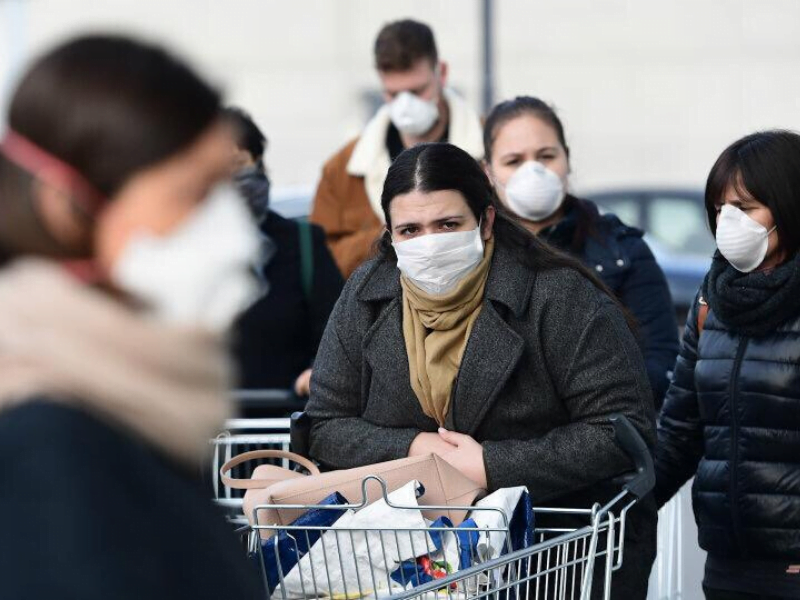Nature has thrown mankind a curveball, a virus that has taken the whole world by storm – literally.
Coronaviruses are a large family of viruses known to cause humans respiratory infections ranging from the common cold to more severe diseases. The most recent, COVID-19, is a new strain discovered in 2019 and it is structurally related to the virus that causes severe acute respiratory syndrome (SARS), according to the World Health Organisation.
Initially, the gravity of the outbreak was downplayed, possibly because of a lack of sufficient information. But now the spread of coronavirus disease 2019 (Covid-19) has reached the necessary epidemiological criteria for it to be declared a pandemic.
The situation is evolving rapidly with planes being forced to turn mid-air and hundreds of airlines reducing flights while some countries, including Italy and Spain, are forced to resort to total lockdowns.
The local medical community is in fact at loggerheads with the government, arguing that it is wiser and more effective to implement a lockdown proactively, rather than reactively, when the situation would be out of control and the health services unable to cope as happened in Italy.
As in two preceding instances of outbreaks of a coronavirus disease in the past 18 years — SARS (2002 and 2003) and Middle East respiratory syndrome (MERS) (2012 to the present) — the Covid-19 outbreak has posed critical challenges for public health, research and medical communities.
A global response that transcends borders and the delineation between the private market and government is necessary to ensure that:
- The immediate threat is quashed as quickly as possible
- That any future threats the virus may present are effectively addressed (resurgence is a possibility)
- That all lessons that can be taken are indeed taken for a safer future
The list is in order of urgency but, in terms of importance, all three priorities are equal and intertwined.
Countries that have been have been exposed to this disease have very valuable lessons to pass on. The level of drastic measures, the speed at which they were implemented, and public cooperation were key determining factors.
The European country worst hit so far was Italy with 15,113 confirmed cases and 1,016 deaths (WHO situation report) at the time of writing.
The average age of those who died in Italy was 81, and more than two-thirds of these patients had diabetes, cardiovascular diseases, or cancer, or were former smokers, according to medical journal The Lancet.
It is true that the most of the patients who died had underlying health conditions, but it is also worth noting that they died because they had contracted the virus, not as a direct consequence of their underlying conditions. In other words, had they not contracted the virus, they would probably still all be alive. A society should be judged on how it values and cares for its most vulnerable.
The challenges in addressing this virus are many, below are some of the key ones:
- The rate of transmission for any respiratory virus has important implications for containment and mitigation strategies. Studies show that each infected person spreads the infection to an additional two persons – until this number falls below 1.0, it is likely that the outbreak will continue to spread.
- Symptoms may appear 1-14 days after exposure. So if a person experiences symptoms and decides to seek medical attention, say five days after having travelled, and turns out to be positive for coronavirus, it is hard to be certain about whether the person contracted the disease locally or internationally.
- So far there is no certainty as to whether patients who are asymptomatic can spread the disease. Besides, tracing all the people who the person came in contact with from the time of boarding the plane till diagnosis is challenging. There may be time lags between the outbreak of symptoms and the patient seeking medical attention. It is not to be excluded that patients with mild symptoms only do not seek medical advice at all.
Given this perspective, it’s highly doubtful whether any savings are being made on the economy by holding back from far more drastic measures recommended by the medical community which is calling for a three-week lockdown.
Inertia or lack of action taken due to prioritising the economy over health can translate into loss of life, and the overburdening of our health system which is not designed for such mass outbreaks (as happened in Italy which no longer has the capacity to deal with new cases).
It is a choice between the lesser of two evils, but we should be doing the right thing.
If you’re in a building made of highly volatile material with a wildfire coming your way, would you wait until the fire is at your doorstep to fireproof the building or move to a safe place?
Panic does not help, but common sense certainly does.
Andre Delicata is a qualified pharmacist.












